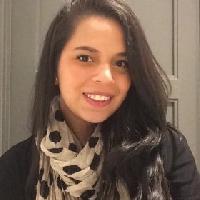Have you ever wondered how many children remain deprived from education? Do you have any idea about how many people do not enjoy their freedom of expression? Have you ever tried to list at least ten of your human rights? It does not come up easily to your mind, does it? Most of the time, we take for granted the fact that we have rights, that very often we ignore what they are and how they apply to our day-to-day life.
Human Rights are the freedoms that everybody has for the simple reason of being human. They represent the way you expect and deserve to be treated as a person. However, getting to this conclusion was neither easy nor was it done over night.
This generation of youth was born in a context in which human rights were universally recognized. This context helped develop an authentic spirit to make one’s voice heard and to claim for those things we are concerned about. Such claims happen in all the spheres where we interact, and they represent a voice in favor of our development and participation as members of the society. Such claims happen at several occasions; for instance, when we demand to our parents to listen to us or when we take part of public manifestations to stand up for issues that affect us.
Article 1 of the Universal Declaration of Human Rights (UDHR) calls for freedom and equality in dignity. Although we appeal to our human rights to fight injustices, we do not always appeal to them collectively. How often do we act together to stand up for others’ rights? What kind of small or big actions make us human rights defenders? How do we promote human dignity in our societies? When we fight against injustices, we are actually asking for dignity. Indeed, dignity is what commits us to our ethical imperative toward equal opportunities to self-development. Regardless of gender, religion, or social condition, ethical actions will always take us to the protection of human dignity.
The most challenging aspect of Human Rights instruments is probably to bring the theory into practice, because words sound nice in paper but need to be part of our realities to actually change them. According to official data, in 2011 at least 57 million children remained out of school1, and by 2012, at least 230 journalists were put in jail for exercising their right to freedom of expression2.
We have the right to education, the right to life, the right to food and shelter, the right to health and security, the right to freedom of thought, the right to freedom of expression, and so forth. Why am I insisting on this? Because we all have the right to know our rights.
If no one can take away our human rights –as the Article 30 of the UDHR establishes–, Why don’t we get mobilized together for our rights and others’? What can be done as young people to promote and protect our rights and the rights of others for a world of greater justice?
1 See http://www.uis.unesco.org/Education/Pages/reaching-oosc.aspx
2 See http://www.cpj.org/imprisoned/2012.php
Ornella Barros is a Master student in Human Rights at the Norwegian Centre for Human Rights, program offered by the University of Oslo. Due to her active involvement in the Global Network of Religions for Children (GNRC) since she was very young, Ornella got inspired and determined to continue her studies and professional experience within the child rights field. As political scientist, she worked for the international NGO World Vision Colombia as National Advocacy Coordinator; and currently, besides her studies, she works for the European Wergeland Centre, a resource centre of the Council of Europe.
